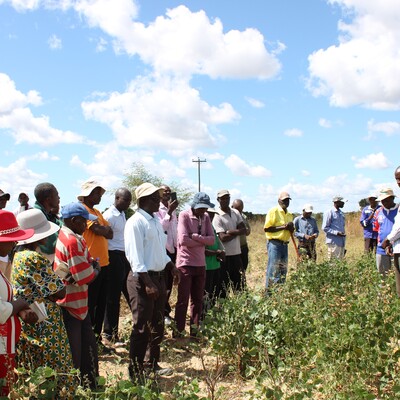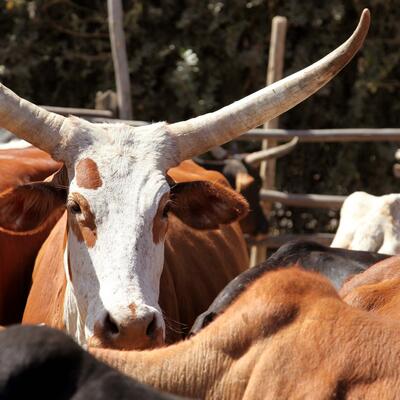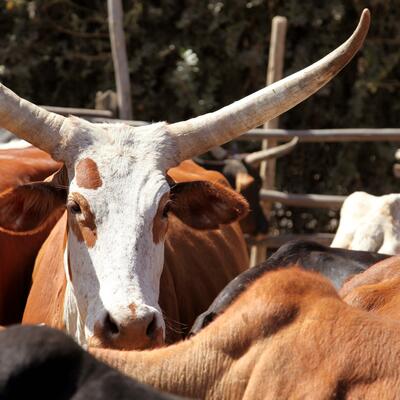

Livestock feed stakeholders call for better access to accurate feed analysis in Ethiopia
Animal feed is an integral part of the livestock food supply chain because it plays a significant role in livestock productivity and hence the availability and price of milk, meat and eggs. Feed analysis is critical for the efficient and profitable production of feed that is safe and of high quality, and is central to professional feed manufacture.
The use of standard analytical methods such as near-infrared spectroscopy (NIRS) assists in quick and efficient analysis of the nutritional composition of feed, and knowledge of feed quality can support improvements in animal productivity and reduce environmental impacts through better ration formulation.
A community of practice (CoP) of laboratories providing livestock feed analysis services using NIRS in Ethiopia was established in 2020 as part of the EQUIP FEED project, which is led by the University of Florida. The goal of the CoP is to increase livestock productivity in Ethiopia by improving the supply of quality feed to dairy cows.
Since its establishment, the NIRS CoP has undertaken a series of activities aimed at building the capacity of laboratory personnel, developing NIRS standard operating procedures, and improving consistency of feed analysis through NIRS in Ethiopia.
Drawing on experiences from a sister project in Burkina Faso, a public–private partnership (PPP) meeting for feed sector stakeholders was convened at the International Livestock Research Institute (ILRI) in Addis Ababa on 18 July 2023.
The participants shared information about NIRS capability in Ethiopia for rapid analysis of livestock feeds, heard different perspectives from potential users of analytical services on their needs and constraints, and reviewed how providers of feed analysis services and potential users of such services in the animal feed sector work in Ethiopia.
The 18 participants of the PPP meeting included representatives of research institutions, universities, farmers’ cooperative unions (FCUs), private feed manufacturers, animal feed and milk processor associations and a private feed analysis provider.
Adegbola T. Adesogan, former director of the Feed the Future Innovation Lab for Livestock Systems, welcomed the participants and emphasized the importance of regular feed analysis in making informed decisions on feed production.
Afterwards, Alan Duncan of ILRI made opening remarks about the establishment of the NIRS CoP, its status and what it has achieved so far.
There followed a series of presentations on the principles and techniques of NIRS, capability of NIRS in feed analysis and its potential benefits as compared to conventional laboratory feed analysis.
Further presentations from participants focused on sharing experiences of service providers, feed processors, the Ethiopian Feed Manufacturers' Association and FCUs in feed analysis in general and specifically the use of NIRS in feed analysis.
These presentations also highlighted the challenges prevailing in feed analysis, stimulating some strong discussions among the participants. Some of the challenges discussed were:
- High cost of feed analysis
- Non-use of NIRS due to turnover of trained employees, especially in the service provider laboratory
- Weak feed quality control schemes and regulation
- Poor feed analysis practice
As an example of poor feed analysis practice, it was mentioned that most of the feed manufacturers and FCUs do not make use of feed analysis frequently, if at all. They evaluate the quality of their product based on the feedback from their customers.
Furthermore, even though it was not on the agenda for this meeting, the participants raised concerns about the recent hike in prices of feed ingredients, noting that feed costs in general are now a bottleneck impeding livestock production and leading to the closure of some dairy and beef farms due to low or no return on investment.
Participants were deeply worried about this and advocated a collective approach and due attention and actions from the concerned government institutions to address the problem.
In conclusion, the PPP participants recommended, among other things, encouraging more private feed analytical service providers to create positive competition, building infrastructure capacity (for example, feed analysis equipment) of the Feed Manufacturers' Association (although noting previous difficulties with provision of equipment to service providers), and focusing feed analysis on trustworthy laboratories.
Simultaneously, they called for regular feed analysis to control product quality and stressed the need to strengthen feed regulatory bodies comparable to food regulatory bodies.
‘Given the importance of livestock to Ethiopia’s economy, it is surprising that reliable, accurate feed analysis service is so scarce in Ethiopia,’ Mesfin Dejene, a livestock feed expert at the Ethiopian Institute of Agricultural Research, said at the end of the meeting. He called for speedy action to ‘address this gap to improve livestock feeding and productivity in the country.’
This meeting was an initial step to addressing the issue of feed analysis capability in Ethiopia, but further dialogue and actions will be needed to deal with the constraints in the sector.
This work was conducted in collaboration with the University of Florida Feed the Future Innovation Lab for Livestock Systems and funded by the Bill & Melinda Gates Foundation under the EQUIP FEED project. The opinions, conclusions or recommendations expressed here are those of the authors alone.
You may also like

ILRI News
ILRI supports Sierra Leone's livestock sector with high-yield forage seeds, boosting food security
ILRI News
High-quality cassava peel mash technology: Global reach, dissemination, and adoption beyond Africa

ILRI News
The ILRI Forage Genebank celebrates 40th anniversary and the launch of exciting new forage and climate research
Related Publications
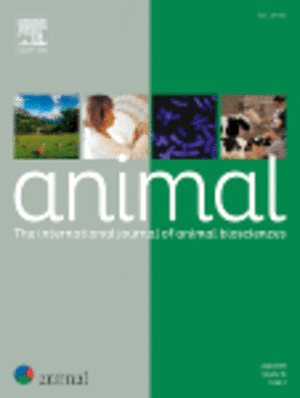
Effect of variation in gridded cattle diet composition on estimated enteric methane emissions in data sparse tropical regions
- Mutua, John Y.
- Duncan, Alan J.
- Robinson, Timothy P.
- Fraval, Simon
- Notenbaert, An Maria Omer
- Watmough, Gary R.

Effect of plant-derived feed additives on enteric methane emission, nutrient digestibility and immune status of adult male goats
- Kumari, N.
- Kala, A.
- Agarwal, N.
- Chaturvedi, V.B.
- Kennady, Vijayalakshmy
- Chaudhary, L.C.
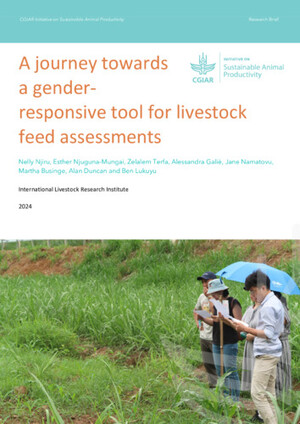
A journey towards a gender-responsive tool for livestock feed assessments
- Njiru, Nelly
- Njuguna-Mungai, Esther
- Terfa, Zelalem
- Galiè, Alessandra
- Namatovu, Jane
- Businge, Martha
- Duncan, Alan J.
- Lukuyu, Ben A.
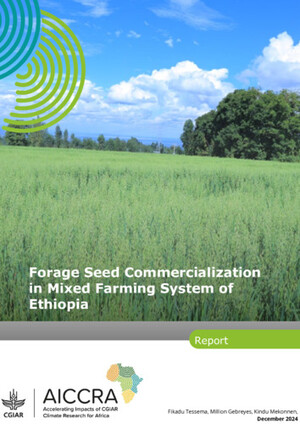
Forage Seed Commercialization in Mixed Farming System of Ethiopia
- Tessema, Fikadu
- Gebreyes, Million
- Mekonnen, Kindu





